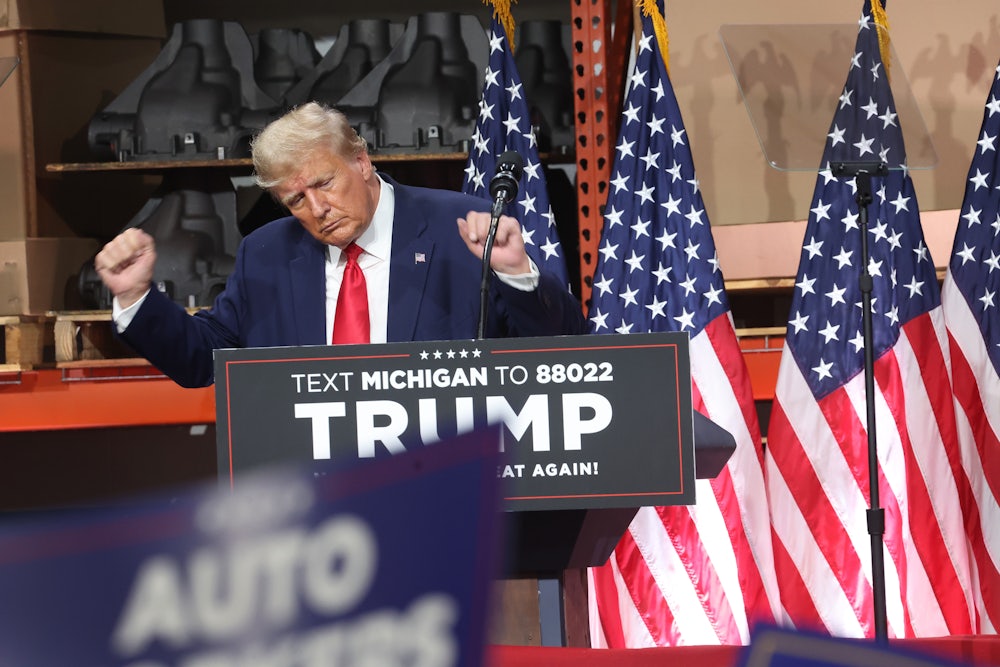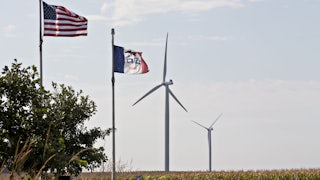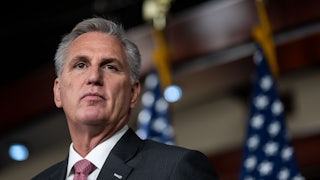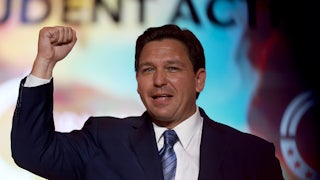It is a come-on long beloved by carnival barkers, casino billboards, and lottery ads: “You can’t win if you don’t play.”
But this obvious truism doesn’t seem to apply to Donald Trump, who is viewed as invulnerable to everything from four indictments to a deranged online diatribe implying that Mark Milley, the outgoing chairman of the Joint Chiefs Staff, deserves to be executed for treason.
The conventional wisdom after Wednesday night’s GOP debate at the Ronald Reagan Library was that there was one obvious winner: Trump, the man who wasn’t there. The Wall Street Journal summed up the postdebate mood in an online headline: “GOP Presidential Candidates Fail to Outshine Trump at Second Debate.” The Washington Post concurred in a subhead: “GOP presidential hopefuls grasp at fading chance to make an impression as Trump again skips the event.”
Late in Wednesday night’s seven-candidate face-off, beleaguered moderator Dana Perino actually framed a question around this seemingly nondebatable premise: “It’s now obvious that if you all stay in the race, former President Donald Trump wins the nomination.… So which one of you on stage tonight should be voted off the island?” When the candidates refused to play along with this reality-show gimmick, Perino turned to Florida Governor Ron DeSantis to ask bluntly, “What is your mathematical path … in order to try to beat President Trump, who has a commanding and enduring lead in the race?”
DeSantis, who originally was hailed as a strong challenger to Trump, responded with blather: “Polls don’t elect presidents. Voters elect presidents.” That was almost as much of a political cliché as if DeSantis had held up a newspaper headline reading, “DEWEY DEFEATS TRUMAN.”
But what Perino and the morning-after punditry miss is that it is still comparatively early in the Republican cycle—and there is still ample time for a non-Trump candidate to make a definitive move. While Trump is obviously the favorite, the Republican 2024 caucus and primary calendar is weird enough to leave the former president vulnerable in the early going.
In truth, DeSantis, former South Carolina Nikki Haley, and South Carolina Senator Tim Scott still boast plausible paths to the nomination. All three candidates are backed by enough Super PAC money to seriously compete in the January 15 Iowa caucuses and the likely January 23 New Hampshire primary.
It is much harder to make a case for Mike Pence and former New Jersey Governor Chris Christie, since both are viewed negatively by more than half of potential Republican primary voters, according to a new Washington Post/Ipsos poll. The odds are even more daunting for outsider candidate Vivek Ramaswamy (a Trump clone blessed with a unique talent to antagonize his fellow debaters, particularly Haley) who admitted without prompting Wednesday night that he’s viewed as “a bit of a know-it-all.” As for North Dakota Governor Doug Burgum, one hopes he enjoyed what were probably his last moments on a debate stage, since he will be hard-pressed to qualify for the next one in early November.
Most of the premature certainty about Trump’s renomination is based on national polling. But caucuses and primaries are sequential, with the results in one state often influencing later voters.
Despite constant polling in Iowa, it is nearly impossible at this stage to accurately predict who will show up in person for the caucuses on a cold Monday evening in January. Republican turnout in Iowa jumped from about 120,000 caucus-goers in 2008 and 2012 to more than 185,000 in 2016 when Ted Cruz narrowly defeated Trump. The Iowa caucuses depend as much on organization as they do on broad appeal, which means that the currently lopsided Iowa polls could be surveying Republicans who won’t actually caucus.
The New Hampshire primary, whose date is still not officially fixed, will partially be shaped by the Iowa results. But it is also almost impossible to forecast GOP turnout, since 38 percent of New Hampshire voters are independents who can vote in either the Republican or Democratic primaries. With scant drama on the Democratic side (Biden will not even campaign in the state because the party considers it an outlaw primary), there could be an outpouring of moderate voters opting for a GOP ballot.
What will magnify the January 23 New Hampshire results is the odd scheduling quirk that there will be no major delegate contest slated on the Republican side for a month after the first-in-the-nation primary. Yes, there is a Nevada primary scheduled for February 6 and caucuses in the state on February 8, but the Trump-dominated state party has been threatening candidates who plan to campaign in the primary. The result of this chaos is that the GOP contenders are voting with their itineraries by ignoring Nevada for the most part.
If Trump loses New Hampshire—which remains a plausible outcome—the image of the Great Man’s fall from grace will dominate the conversation until the February 24 primary in South Carolina, which is the home state of Haley and Scott. Even though Trump is currently near 50 percent in the South Carolina polls, those numbers could be evanescent if he has underperformed in the early going. And the impossible-to-gauge South Carolina outcome will have an immediate echo in the Michigan primary three days later. All this is prelude to Super Tuesday on March 5, when about a dozen states, including California and Texas, weigh in. Political soothsayers also tend to forget that Trump may be spending considerable time early in the year scowling in courtrooms with the possibility of multiple guilty verdicts hovering over the campaign. In fact, Trump may end up as a double loser—in the eyes of both a jury and the voters in the early primaries.
None of this is designed to argue that Trump will lose the nomination. But the talking heads and the political railbirds are underestimating the chances that he could lose. What we have seen in the debates is that both Haley and Scott can be compelling. And even DeSantis, for all of his lack of discernible charm, can be effective. As much as the media craves certainty, we still have a long way to go before we have a 2024 Republican nominee.




